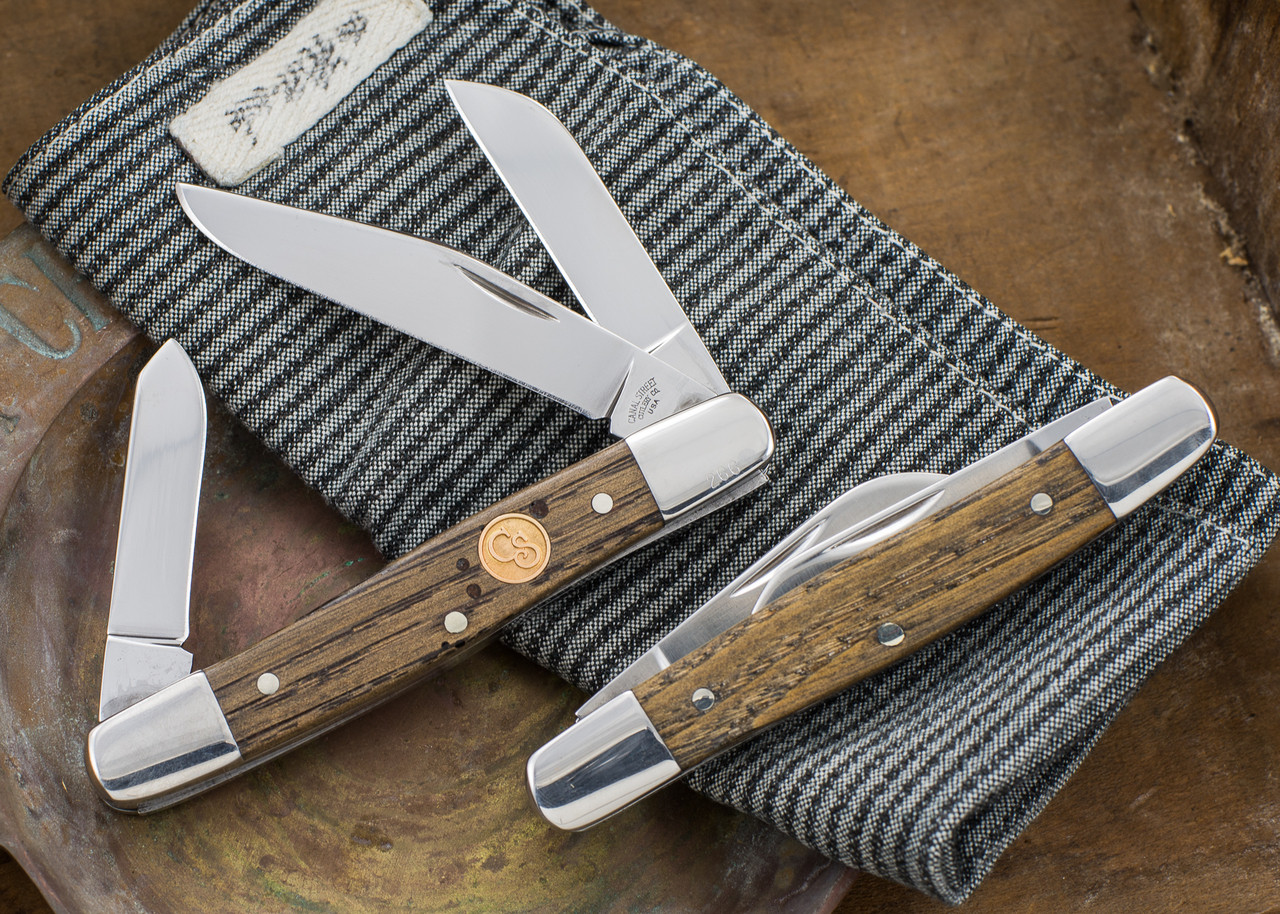Interview: Wally Gardiner
31st Mar 2015
Back in 2009 and 2010, KnivesShipFree published a monthly newsletter called From the Edge. One of its recurring features was an interview with a knifemaker or industry executive. We thought you'd be interested in visiting these conversations again, so we're presenting them here on the KnivesShipFree Blog.
This is our interview with Wally Gardiner of Canal Street Cutlery -- enjoy.
Interview: Wally Gardiner
A chat with Canal Street's chief
For anyone who loves pocketknives, even more so for those of us who appreciate the heritage of the American cutlery industry, any conversation with Wally Gardiner is far too brief. Now the head man at Canal Street Cutlery Co., he spins his tales not merely as a historian but as a first-hand witness.
This is the Wally Gardiner that began working for Schrade Cutlery more than a generation ago. Today he still reports to that familiar address in Ellenville, New York. Schrade, at least as we knew it, is gone, but Gardiner's vision created Canal Street Cutlery in the same space.
 He's quick to point out that the building originally was home to the Sheffield-trained artisans of the New York Knife Cooperative, then Divine & Sons and then Schrade. Canal Street Cutlery today occupies Schrade's old hunting-knife department, where knives now have been made continuously since 1848.
He's quick to point out that the building originally was home to the Sheffield-trained artisans of the New York Knife Cooperative, then Divine & Sons and then Schrade. Canal Street Cutlery today occupies Schrade's old hunting-knife department, where knives now have been made continuously since 1848.
"Yes, the walls do rattle from time to time," winks Gardiner.
Along with partner Joe Hufnagel, who's now retired, several years ago Gardiner recruited a number of former Schrade employees. Together they accounted for 700 years of combined knifemaking experience -- ranging from a 65-year master to a 15-year "rookie" -- and Canal Street Cutlery was born.
"We wanted to keep the tradition," Gardiner says. "Our goal is to produce traditional American patterns -- with a twist."
Canal Street's heritage slipjoints get brass liners, for example, while contemporary interpretations of classic patterns get stainless-steel liners. (That's one of the twists.) Bolsters are, for the most part, 18% nickel-silver. Blade steel is matched to intended purpose -- D2 for a woodcarving knife, 440C for a trapper, even 19C27 for a D'Holder fixed-blade. (Yes, Canal Street makes more than just slipjoints.)
But there's more to a great blade than just choosing the right steel, according to Gardiner.
"The quality of heat-treatment is critical -- it's got to be done and it's got to be done right if a blade is going to perform. If it's not done uniformly and consistently, a blade is going to disappoint you at some point while you own it."
When we observed that Canal Street's knives evoke the feeling of true handmade customs, Gardiner's passion and pride become evident.
"We make knives at a quality level that hasn't been seen in a hundred years -- we don't do anything fast. Every single knife is made on a bench, one at a time, with over 140 hand operations. We take pride in fit and finish, and we make our knives for people who recognize that kind of quality."
Behind the devotion to American cutlery tradition and a pursuit of excellence, it's clear that Gardiner takes knifemaking personally. He speaks fondly of his first pocketknife -- an iron-bolstered Schrade jack he's had since he was eight years old. He rustles through papers on his desk, picks up a handful of customer letters and begins reading them aloud. After finishing the third or fourth one, he's silent for a time.
"Emotional heartstring," he whispers. "That's the emotional heartstring."
He goes on to describe his wish list, knives he hopes that Canal Street Cutlery has the time and resources to make in the future (a lockback, a large folder, a Norfolk jack), but we're still struck by the moment when Wally Gardiner showed us what really fuels his passion -- people.
It's the people who make Canal Street knives, collect them and use them that keeps him in the game. That, as much as the quality of the product itself, is why KnivesShipFree is proud to offer the traditional quality of Canal Street Cutlery to you, our friends and customers.
